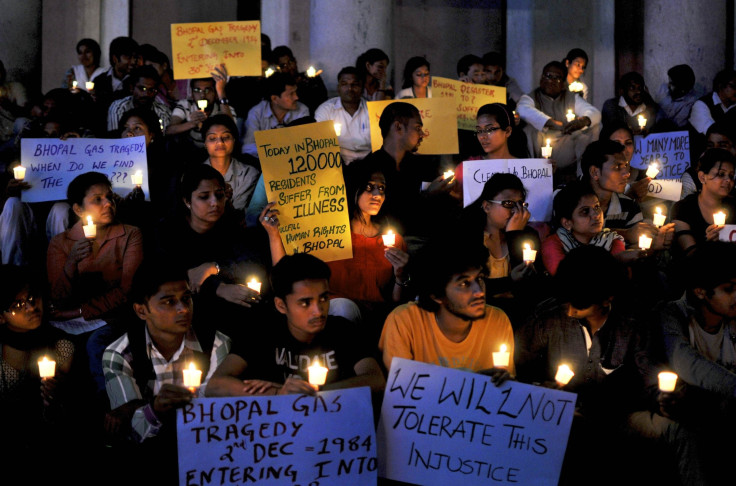Bhopal Gas Tragedy Q&A: 30 Years On, India Still Unprepared To Handle Industrial Disasters

International Business Times interviewed several people who dealt with the Bhopal gas disaster in various ways. Here are edited excerpts of interviews with N. P. Mishra, the doctor in charge of the medical response to the leak; T.R. Chouhan, an operator at the Union Carbide plant at the time of the disaster; Manoj Pandey, current head of the Bhopal Memorial Hospital & Research Centre that caters to the gas victims; S.A. Pillai, head of the Institute of Industrial Management for Safety, Health and Environment, Bhopal; and Swaraj Puri, the city police chief of Bhopal when the disaster occurred.
How many people did the disaster affect?
Pandey: What we call as affected people is the pool of 574,000 people who have been awarded compensation. All those people, irrespective of category in which the compensation was awarded, are known as “gas victims” and they are all being treated at the Bhopal Memorial Hospital and Research Centre and six other state government hospitals, for free. The Supreme Court, in its 2010 judgment, allowed first generation dependents to also be included (and made them eligible for free treatment). I’m therefore catering to a population of about 1.5 million.
Did the effects of the gas leak pass on to the second generation?
Mishra: We studied that point. There was no chromosomal mutation.
Pandey: Honestly, we don’t know, because there is no empirical evidence as of today to suggest that some of the changes might have passed on. I will not make a blank statement (that it cannot be passed on) because there are a number of mutations that can happen, some of the mutations could be inheritable mutations. We don’t know. So, I’ll say there is an absence of evidence but there is no evidence of absence.
Were there indications before the disaster that there was something wrong with the plant, as at least one person had died a couple of years before?
Puri: There had been an accident. And, when this tragedy did take place, it came into perspective, and more importantly, that is the time when we started asking the question, as to what did they do about making amends for the accident that took place. And, frankly, there weren’t any satisfactory answers forthcoming. The magnitude of the problem was so intense and so immense that one was so engrossed in trying to do the best you could to be able to provide relief help and succor to the people. But then, within the first three or four days, the investigation itself was taken over by the CBI (Central Bureau of Investigation). But this question did linger, as to what did they do, and you can debate the adequacy all the time.
What major industrial safety issues does India suffer from?
Pillai: The law is not stringent. The law was enacted by the British government in 1945-46. How many amendments have taken place? People thought of amending it after the Bhopal disaster, but why not before? In the act, it is written that an industry that employs 1,000 or more people should have one qualified safety engineer. Are you sure that an industry having 999 employees will not have an accident? Why this figure of 1,000? All industries should at least have one qualified safety officer. Second point is the total awareness and importance of safety. Productivity and quality is enhanced where safety is imposed.
What did India learn from the Bhopal disaster? Is the country better prepared now than it was 30 years ago to face a disaster of this magnitude?
Pillai: We have not learned, truly speaking. There are four issues in learning: one is the infrastructure of the government, second is rules and regulations, third is enforcing of the rules and regulations, and fourth is the total awareness of the subject. If these four issues are taken care of, this type of disaster will not be repeated. Are we on that track or not? If you ask me, I’ll say no.
Pandey: Wherever there is a disaster, the army is called in. So, probably the army is the only organization that is ready to combat disaster. We require rapid response teams. Not just industrial disasters, there could be man-made disasters, biological and chemical warfare.
Puri: Compared to 1984, India is better prepared. But, adequately prepared? No, because probably the orientation is missing. The realization of what can happen is missing. Now, we have fixed protocols, we have the involvement of the community in disaster management, we have a state disaster management authority, people are getting trained and oriented, you have the National Disaster Management Authority, the standard operating procedure for each kind of disaster has been laid down. There is a team of people who specialize in the management of disasters. I have been part of that plan to prepare ourselves, to the extent that the common citizen knows which medical place to go to, doctors know who to treat and how to treat.
© Copyright IBTimes 2024. All rights reserved.





















